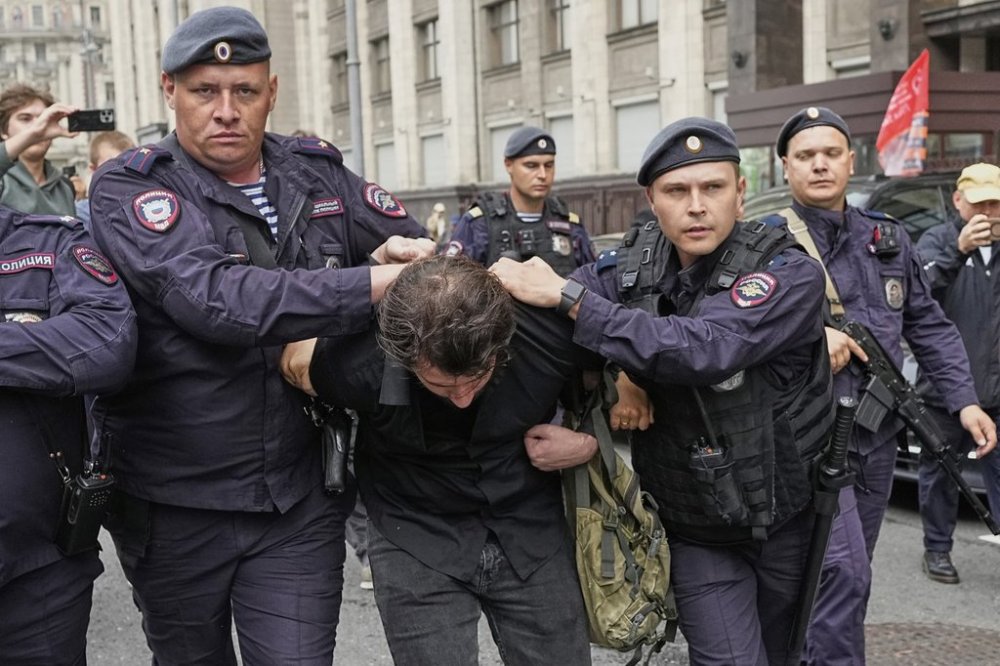Russian parliament approves a bill punishing online searches for information deemed ‘extremist’
Advertisement
Read this article for free:
or
Already have an account? Log in here »
To continue reading, please subscribe:
Monthly Digital Subscription
$0 for the first 4 weeks*
- Enjoy unlimited reading on winnipegfreepress.com
- Read the E-Edition, our digital replica newspaper
- Access News Break, our award-winning app
- Play interactive puzzles
*No charge for 4 weeks then price increases to the regular rate of $19.95 plus GST every four weeks. Offer available to new and qualified returning subscribers only. Cancel any time.
Monthly Digital Subscription
$4.99/week*
- Enjoy unlimited reading on winnipegfreepress.com
- Read the E-Edition, our digital replica newspaper
- Access News Break, our award-winning app
- Play interactive puzzles
*Billed as $19.95 plus GST every four weeks. Cancel any time.
To continue reading, please subscribe:
Add Free Press access to your Brandon Sun subscription for only an additional
$1 for the first 4 weeks*
*Your next subscription payment will increase by $1.00 and you will be charged $16.99 plus GST for four weeks. After four weeks, your payment will increase to $23.99 plus GST every four weeks.
Read unlimited articles for free today:
or
Already have an account? Log in here »
MOSCOW (AP) — The Russian parliament’s upper house on Friday quickly approved a bill that punishes online searches for information officially branded “extremist,” the latest in a series of moves by authorities to tighten control of the internet.
The legislation makes what it describes as “deliberately searching for and accessing extremist materials” online punishable by a fine of up to the equivalent of $64.
The bill, which was endorsed by the lower house earlier this week, is now set to be signed into law by President Vladimir Putin.

The official definition of extremist activity is extremely broad and includes opposition groups like the Anti-Corruption Foundation, created by the late opposition leader Alexei Navalny, and the “international LGBT movement.”
It’s not clear how authorities will track down violators.
Officials and lawmakers said ordinary internet users won’t be affected and only those who methodically seek outlawed content will be targeted. They didn’t explain how authorities would differentiate between them.
Russians widely use VPN services for access to banned content, but authorities have sought to tighten restrictions and close the loopholes. The state communications watchdog has increasingly used technology to analyze traffic and block specific VPN protocols.
Russian authorities have ramped up their multipronged crackdown on dissent after sending troops into Ukraine in February 2022.
Since then, online censorship and prosecutions for social media posts and comments have soared.
Multiple independent news outlets and rights groups have been shut down, labeled as “foreign agents” or outlawed as “undesirable.” Hundreds of activists and critics of the Kremlin have faced criminal charges.

